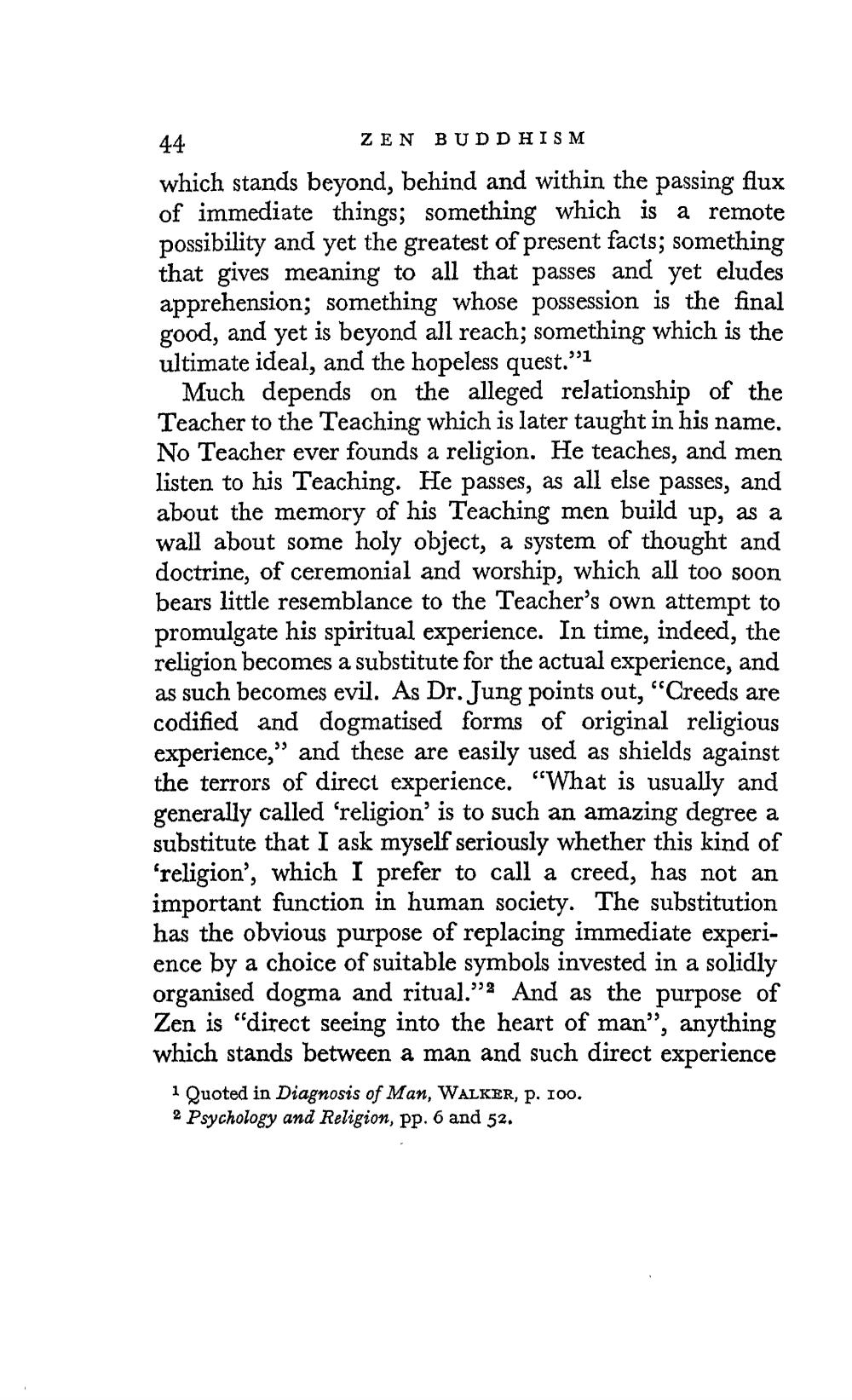________________
44
ZEN BUDDHISM which stands beyond, behind and within the passing flux of immediate things; something which is a remote possibility and yet the greatest of present facts; something that gives meaning to all that passes and yet eludes apprehension; something whose possession is the final good, and yet is beyond all reach; something which is the ultimate ideal, and the hopeless quest.”1
Much depends on the alleged relationship of the Teacher to the Teaching which is later taught in his name. No Teacher ever founds a religion. He teaches, and men listen to his Teaching. He passes, as all else passes, and about the memory of his Teaching men build up, as a wall about some holy object, a system of thought and doctrine, of ceremonial and worship, which all too soon bears little resemblance to the Teacher's own attempt to promulgate his spiritual experience. In time, indeed, the religion becomes a substitute for the actual experience, and as such becomes evil. As Dr. Jung points out, “Creeds are codified and dogmatised forms of original religious experience," and these are easily used as shields against the terrors of direct experience. "What is usually and generally called “religion' is to such an amazing degree a substitute that I ask myself seriously whether this kind of “religion', which I prefer to call a creed, has not an important function in human society. The substitution has the obvious purpose of replacing immediate experience by a choice of suitable symbols invested in a solidly organised dogma and ritual."2 And as the purpose of Zen is "direct seeing into the heart of man", anything which stands between a man and such direct experience
i Quoted in Diagnosis of Man, WALKER, P. 100. 2 Psychology and Religion, pp. 6 and 52.




